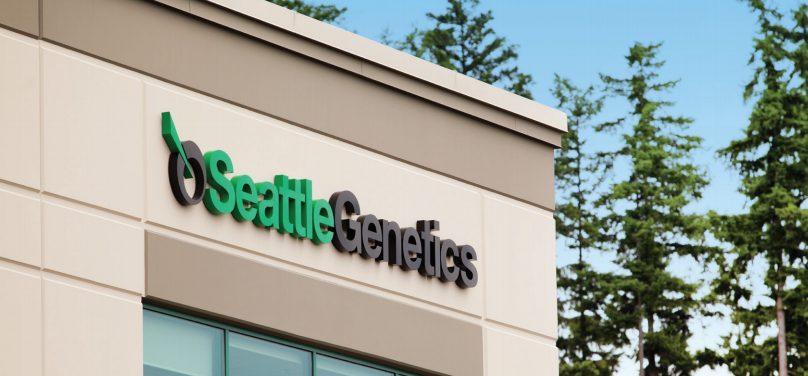Seattle Genetics says data backs Padcev combo for first-line bladder cancer

Seattle Genetics and Astellas' new drug for relapsed bladder cancer - Padcev - could move up the treatment pathway with help from Merck & Co's Keytruda.
An ongoing phase 1b/2 trial of recently-approved Padcev (enfortumab vedotin) given with Merck's checkpoint inhibitor Keytruda (pembrolizumab) shows a 73% response rate in patients with previously-untreated advanced or metastatic urothelial cancer (UC).
The results come after almost a year of follow-up and involved patients ineligible for first-line chemotherapy, suggesting Padcev plus Keytruda could be a new first-line option for UC, the most common form of bladder cancer.
Padcev was given an accelerated approval by the FDA towards the end of 2019 for locally advanced or metastatic UC after treatment with platinum-based chemo and a PD-1/L1 inhibitor such as Keytruda or AstraZeneca's Imfinzi (durvalumab).
The green light was based on a single-arm phase 2 trial in this second-line setting, which showed Padcev treatment resulted in an overall response rate of 44%, comprised of a complete response rate of 12% and a partial response rate of 32%.
A phase 3 confirmatory trial of the drug in this second-line setting is ongoing, as is another late-stage trial alongside Keytruda - with or without chemotherapy - in first-line metastatic UC.
Seattle's chief executive Clay Siegall said recently the latter trial is “key to our global development strategy” for the new drug.
Moving into the first-line setting would expand the potential market for Padcev, a first-in-class antibody-drug conjugate directed against Nectin-4 which launched in the US last month with a list price of $110,00 to $120,000, ahead of any rebates or discounts.
Seattle and Astellas have so far declined to give any sales forecasts for the drug, saying that will come after they gain more experience with the marketplace, but Siegall has said its initial uptake "exceeded our internal predictions."
Keytruda was approved as a monotherapy for first-line UC in 2017 on the strength of a 29% overall response rate, including 7% complete responses, so adding Padcev seems at first glance to provide a sizeable uptick in activity.
Meanwhile, Seattle and Astellas are also testing Padcev on its own and with Keytruda before surgery for early-stage, muscle-invasive bladder cancer.
Plans are also ongoing to start trials in non-muscle invasive bladder cancer or NMIBC – an indication for which Keytruda claimed an FDA approval last month – as well as other Nectin-4 expressing tumours such as breast, non-small cell lung, head and neck and gastric cancers.












